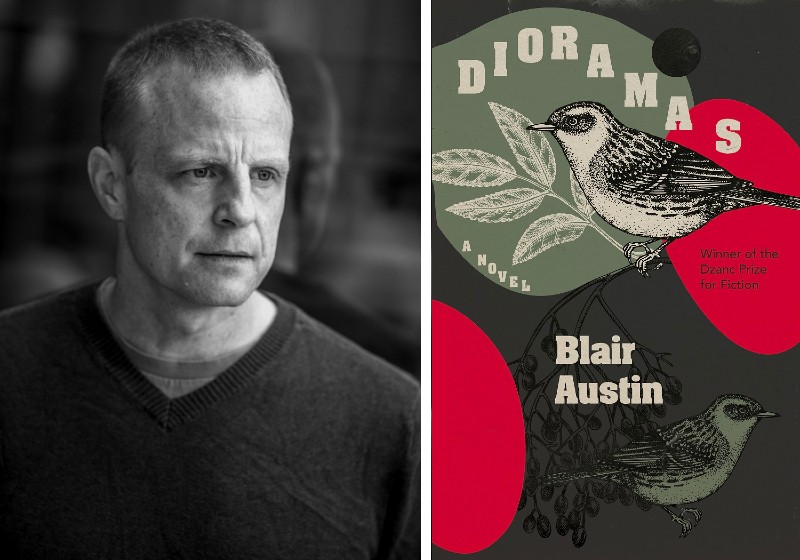Scale Up: Adam J. Snyder Overcomes Life’s Obstacles on “Down From the Mountain Out to the Sea” EP

No “mountain” is too high for Adam J. Snyder to scale.
The Ypsilanti singer-songwriter and guitarist overcomes life’s obstacles to follow a new path on Down From the Mountain Out to the Sea.
“I’ve been pushing against myself, and I feel like I’ve been in the weeds my whole life. I’m in a pretty good place now, and I’m heading in the right direction of where I want to be,” said Snyder about his latest folk-pop EP.
“I went to Nicaragua in March, and I got to spend some time in the mountains. Then I got to spend time surfing on the beach and hanging out. Something about [that] just felt like where I wanted to be and what I wanted to do, so that’s my goal.”
As part of that goal, Snyder shares that positive outlook on Down From the Mountain Out to the Sea, which features soft, breathy vocals; concise lyrics; bluesy influences; and percussive, rhythmic, and fingerpicked acoustic guitars.
Those elements create a comforting sonic experience and reflect the hope, encouragement, and determination embedded in the EP’s five tracks.
“I’ve just been feeling a little more in touch with that kind of stuff when I’ve been writing,“ said Snyder, who grew up in Dexter and previously fronted the now-disbanded Dirty Deville.
“When I come across an idea or things that feel right … or I’m just doing what I enjoy, which is playing guitar, I feel more connected to that kind of stuff. I feel like things are in alignment.”
Her Story: Joanna Sterling Chronicles a Trans Woman’s Journey on “Queen of Wands” Album

For Joanna Sterling, Queen of Wands represents an emotional journey filled with self-discovery, authenticity, and courage.
The Ann Arbor singer-songwriter reveals her inner thoughts, feelings, and experiences as a trans woman on her sophomore release.
“It’s very autobiographical, and I did have to cultivate a lot of courage to even write some of these. If you had asked me five years ago would I ever open an album with my boy name before I transitioned—like no, absolutely not,” said Sterling about her new folk-pop album.
“I wanted to open with that song ‘Joey’ because it took a lot for me to be like, ‘You know what, I want to accept my full self, not just me as a post-transition woman, but also who was I before and how that person is still very much a part of who I am today, and my journey that I had to take to become the woman that I am.’”
Sterling documents that journey through 13 cathartic tracks—which range from confessional ballads to rallying cries to melancholic tales—on Queen of Wands. She connects with listeners through honest lyrics, nature-filled imagery, and folk-inspired instrumentation.
“I feel like a lot of the themes that are explored on this album aren’t just about being transgender. They’re really about the journey we all have to take in order to accept ourselves,” she said.
“I feel like I was able to strike a balance by being really honest about some of the specific things I’ve been through, but also make them accessible and relatable to others potentially.”
We recently spoke to Sterling about her background, the album’s tarot-inspired title, the stories behind several of the album’s tracks, her collaboration with producer Chris DuPont and other local musicians, her album release show, and plans for new material.
In Short: Ypsilanti's Head Full of Ghosts Packs Powerful Sound Into Concise "654 Seconds" EP

Head Full of Ghosts packs a magnitude of sound into a short amount of time.
The Ypsilanti quartet of James Henes (vocals, rhythm guitar), Geoff Loebe (bass), Ken Ball (lead guitar), and Bryan King (drums), shares hard-hitting, alt-rock instrumentation across a concise EP aptly titled 654 Seconds.
“When we initially got the EP finalized, it came out to 654 seconds [or about 10 minutes in length],” said Henes, whose band also released its debut EP, 321 Miles, in 2021.
“Once again, it's another testament to time-stamping [in terms of] where we are as a band at this moment. We have always enjoyed when things have a reoccurrence, so the number thing will most likely be a part of us as we move forward.”
Head Full of Ghosts also incorporates prog-rock sensibilities throughout 654 Seconds, which features three contemplative tracks about authenticity, inner struggles, and change.
To learn more, I talked with Henes about the EP’s tracks, the creative process for the EP, the band’s new lineup and electric sound, the band’s musical influences, and upcoming plans.
Flow State: Katie Hartsock’s Poems Fluidly Move from One Place to the Next in New "Wolf Trees" Poetry Collection

Katie Hartsock’s poetry collection, Wolf Trees, surveys what persists amidst trials that must be weathered. One poem defines the titular term as, “A tree that is the forest that is / the island.” A wolf tree is also, “A tree to lean / against and think, I’m there.”
Hartsock, a professor at Oakland University, connects the mundane and discouraging aspects of one’s personal and family life to the natural world and also to different points in time. In the poem “Decent Seas,” the setting is a Chicago harbor. The poet instructs us to, “Think of a desire turned into a satisfaction turned into a joy / turned into a joke. That’s how to name your boat.” Whether the topic is boats, local parks, wolf trees, art, or Greek mythology, Hartsock has, “my gaze trained / on earth’s colors as they shift, / ready for invention.” The poet’s attention to nature leads the reader to new associations and even new ways of being in this world.
Hartsock’s poems take sweeping journeys through the woods, as “you see something and think of something else.” The poems’ lines make sharp observations about having children, managing a chronic health condition, and traversing both regular days and other countries. “It’s all a little Sisyphean,” Hartsock writes.
Personal Investment: Blind Liars Explore Self-Worth and Authenticity on “The Ringer” Album

For Blind Liars, a debut album provides a vulnerable outlet for understanding one’s self-worth.
The Ypsilanti indie-rock quartet unearths deep emotions from the human psyche—including shame, disappointment, and loneliness—to reveal an authentic sense of self on The Ringer.
“A decent amount of what we have on the album deals with failure and loss and picking yourself up from it,” said Schala Walls, one of Blind Liars’ lead vocalists and multi-instrumentalists. “The very act of writing this music was kind of an investment in my self-worth, so all of the songs kind of reflect that.”
Alongside bandmates Jon Root (lead vocals, songwriting, keys, guitar, bass) and Eric Bates (drums, bass, guitar), Walls channels personal experiences of social alienation due to neurodivergence and queerness across eight cerebral tracks. (Bassist Mari Neckar joined after the album was recorded.)
The Ringer features intimate ballads, howling sing-alongs, and emotional tales steeped in ‘60s prog-rock, shoegaze, and a kitchen sink-full of other influences.
We recently spoke to Blind Liars about the band’s formation, its newest member, the album’s theme and sound, the writing and recording process, upcoming album release shows, and future plans.
"Lean In" and Listen: Ness Lake's Chandler Lach on bedroom emo, prolific songwriting, and digicore

Chandler Lach explores raw emotions and deep themes of love and heartache on his new album as Ness Lake, I Lean in to Hear You Sing. Released in May as the follow-up to Ness Lake's 2022 record, Yard Sale, the new album displays Lach's evolution as a songwriter and a more expansive sound as an arranger, lacing his indie-folk pop with electronics.
The Ypsilanti-based Lach is turning Ness Lake into a full band with Marco Aziel (bass), Jack Gaskill (drums), and Tanner J. Ellis (guitar), and the quartet is woodshedding this summer to prepare for fall concerts.
I talked with Lach about his beginnings as an artist, his writing process, what he's been listening to, and I Lean in to Hear You Sing.
Lifelike Living: Blair Austin's inventive new book, "Dioramas," defies easy categorization

Blair Austin's Dioramas, which won the Dzanc Books Prize for Fiction, is described by the publisher as “part essay, part prose poem, part travel narrative.”
The author—an Ann Arbor native and University of Michigan MFA alum—describes dioramas to “view” through the eyes of the main character, Wiggins, whose stream-of-consciousness narration means that the reader must piece his world together as the book progresses.
Austin creates a semblance of beauty in the slow-growing shock of what is contained in the dioramas' preserved scenes.
Wiggins, a lecturer, is a scholar of dioramas and builds them, too, even in retirement. He studies the works of experts Michaux and Goll, both of whom made dioramas and contributed their theories about the art form to the field. Regarding Michaux, Wiggins reveals:
"Ghost" Stories: Jonathan Edwards explores a sparser sound on his lyrical new solo album

Jonathan Edwards recorded, produced, and performed the 13 songs on Wild Ghosts almost entirely by himself, playing everything from bass and drums to synthesizers and Wurlitzer organ.
But he could have just as easily performed the beautiful songs on Wild Ghost solely with his guitar, the instrument at the heart of the album, with Edwards displaying excellent fingerstyle playing throughout the record.
"Wild Ghosts is definitely more of a singer-songwriter album than anything I have done in the past and is something I have wanted to do for a long time," said Edwards, who studied music at Indiana University and Eastern Michigan. “Most of the songs on Wild Ghosts can be distilled down to more traditional folk tune-type influences, although there are still some more elaborate and dense arrangements with songs like ‘Paper Birds’ and ‘Mask of Bees.' Simplification is an art I am still learning."
I talked with Edwards about his musical upbringing, his influences, his writing process, Wild Ghosts, and more.
My Generation: Social Meteor Shares Everyday Struggles of Gen Z and Millennials on Self-Titled Debut Album

Social Meteor didn’t expect its debut album would speak for a generation—or two.
It started as a creative outlet for documenting each member’s challenges but soon evolved into a collective voice for sharing Gen Z and Millennial struggles.
“All the songs are a reflection of what our lives have been like and the struggles that we go through on a day-to-day basis living in 2023 and the past few years,” said vocalist-keyboardist Jordan Compton about the Ypsilanti indie-rock band’s new self-titled album.
“It’s honest because we didn’t intend to make some grand scheme, and we didn’t know what the theme of this album was gonna be when we picked the songs to go with it. It formed over time and reflects what it’s like to live in modern America as a younger person.”
Those reflections not only come from Compton, but also from his three Social Meteor bandmates: Paul Robison (drums, vocals), Brad Birkle (guitar, vocals), and Patrick Frawley (bass, vocals). Together, they explore relationships, losses, and lessons alongside complex emotions.
“They’re like journal entries, and it’s more of a personal approach. When we are trying to write songs, everyone writes them a little differently,” said Robison, who co-formed the group in 2019 and co-derived the band’s name from a wordplay on the term “social media.”
“The nice part about us is that we can all write songs … and something I’ve taken from them is: ‘Don’t try to pretend and be like somebody else. You can take information in from other people, but don’t fake it; try to make it real.’”
Sing Us a Song: The piano men and women of "Duelers" star in a new Michigan-produced film with deep local connections

Duelers Piano Bar is the home of five young musicians who trade keyboard licks and share solace, shots, and sounds on a nightly basis. But the venue that offers them a routine and respite from problems is about to be sold by a money-hungry owner, which will turn their lives upside down.
This is the plot of Duelers, a new movie made by a group of multi-talented Michigan creatives. Writer/composer/co-star Drew De Four, producer / cinematographer Danny Mooney, and their cast of real-life performers straddle the line between a concert film and backstage drama. The film was shot at the now-closed J.D.'s Key Club piano bar in Pontiac, Michigan, taking 12 days over two weeks.
Like his co-stars, De Four is a real dueling pianist, and his talents have taken him around the globe. During shooting, he lived with the actors who play Tyler (Tom McGovern), Jane (Elisa Carlson), Skip (Danny Korzelius), and Bethany (Shelby Winfrey), the multi-talented musicians who share the stage nightly with Drew (De Four) at the fictional Duelers Piano Bar.
De Four, 40, has been playing in piano bars since he was 19. He was a student at Eastern Michigan University when he saw an ad for Pub 13, a dueling pianos bar in Ypsilanti.
"I took five years of piano lessons from ages 7 to 12," De Four says. "From 12 to 18, I taught myself piano, guitar, bass, mandolin—a little bit of drums. When I was 19 I went to Eastern for a year to study piano, and my professor told me I should not be studying classical piano because when I came back from the piano bars asking, 'How do I do stride piano?' He said, 'You could teach me. You seem to know exactly what you want to do. We're studying Rachmaninoff and Liszt: That's not what you're meant for.'"


































